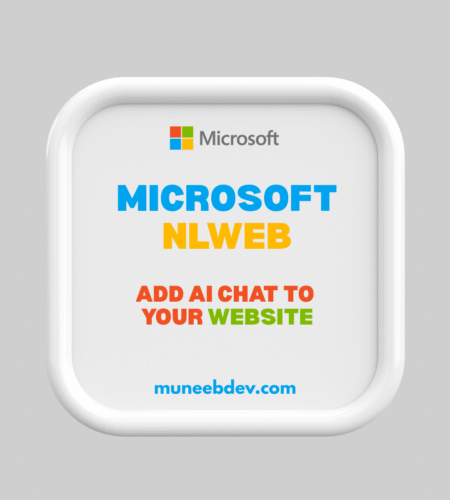Redmond, WA – May 21, 2025 – In a major stride toward reshaping how users interact with websites, Microsoft has officially unveiled the NLWeb (Natural Language Web) project. Introduced at the Build 2025 developer conference, this open-source initiative aims to bring advanced AI-powered conversational interfaces to the forefront of web development.
Bridging AI and Web with Natural Language Interfaces
Microsoft NLWeb represents a significant evolution in web accessibility and user interaction. The technology enables websites to integrate natural language processing (NLP) capabilities, allowing users to interact with online content through intuitive, conversational queries. Rather than relying on static menus or keyword searches, users can simply “ask” websites what they need, mirroring the experience of speaking with a digital assistant.
This innovation comes at a time when generative AI, large language models (LLMs), and AI-assisted browsing are rapidly becoming essential tools in both enterprise and consumer settings.
Key Features and Technological Framework
At the core of NLWeb is its seamless integration with open web standards such as Schema.org and RSS, along with compatibility with a variety of AI models. It transforms any supported website into a dynamic, AI-interpretable platform capable of responding to natural language commands.
NLWeb also operates as a Model Context Protocol (MCP) server. This allows websites not only to communicate directly with users but also to make their content accessible to AI agents, enabling intelligent automation and cross-platform interoperability.
“NLWeb empowers developers to deploy conversational experiences with their preferred AI models while using their own website data,” Microsoft stated during the launch.
Advancing the Agentic Web Vision
The NLWeb project is a foundational step toward what Microsoft describes as the “agentic web” — an evolving internet where AI agents can autonomously browse, interpret, and act on information across websites. This shift is expected to enhance user efficiency, reduce friction in digital interactions, and create new opportunities for content discovery and e-commerce.
Microsoft likens NLWeb’s potential impact to that of HTML in the early days of the internet. While HTML enabled the publishing of documents online, NLWeb is positioned to enable AI-native interactions that turn static content into dynamic, responsive interfaces.
Open-Source and Developer-Friendly
NLWeb is open-source, ensuring broad accessibility and encouraging community contributions. It is designed to be platform-agnostic, supporting various operating systems, programming frameworks, and AI models, making it highly adaptable for developers across industries.
The project includes a suite of tools and documentation that simplify integration for both new and existing websites. Developers can leverage these resources to quickly prototype and deploy conversational features without overhauling their backend infrastructure.
Future Implications
Microsoft’s NLWeb is set to redefine how users engage with online platforms. By introducing AI-driven natural language interfaces, it offers a glimpse into a future where web interaction is more intuitive, responsive, and intelligent.
As AI integration continues to expand across digital ecosystems, tools like NLWeb will likely become foundational elements in modern web architecture. Microsoft’s early leadership in this domain underscores its strategic vision of blending AI with open web technologies to shape the next generation of internet experiences



